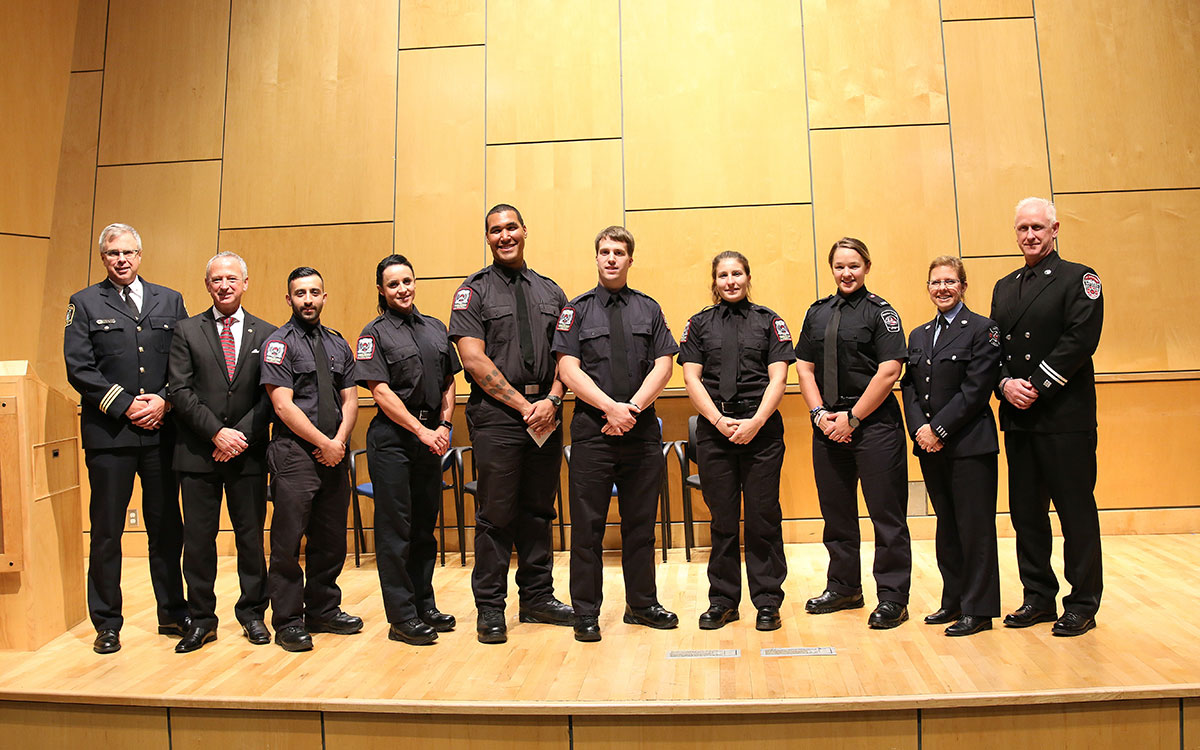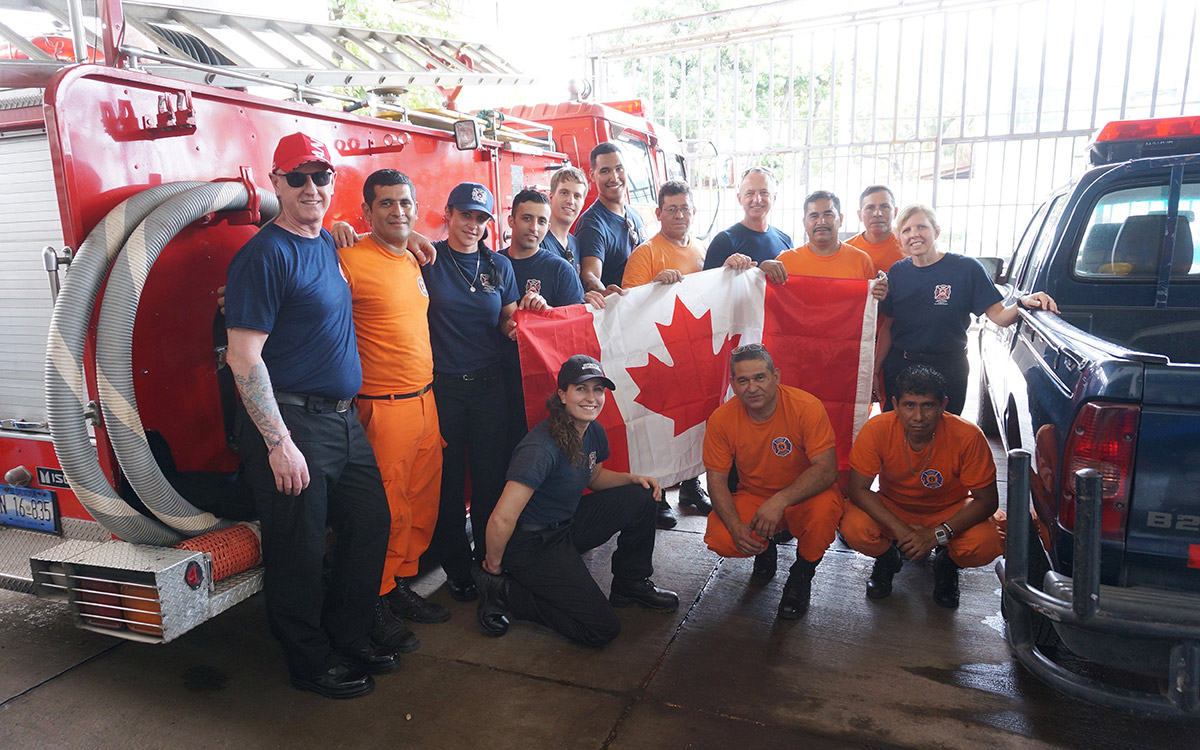Justice Institute of British Columbia (JIBC) firefighting graduates recently travelled overseas to support basic firefighter training in El Salvador.
They returned having learned lessons of their own, and gained a greater appreciation for the firefighting systems and resources back home in Canada.
The five students, all graduates of JIBC’s Fire Fighting Technologies Certificate program, travelled to the Central American country on a two-week deployment, to visit numerous local fire halls and train local firefighters.
This special program is made possible with support from the Fire Rescue International Training Association (FRITA) and student scholarships from the Irving K. Barber One World International Scholarship administered by the Victoria Foundation with additional support from JIBC.
The JIBC One World students went into the trip believing they would be the ones teaching and training local firefighters, said Phoenix Gordon, one of this year’s One World participants, all of whom shared their experiences in a presentation at the New Westminster Campus recently.
“When we were actually there we got to feel what it was like to learn more than anything. Their people have experienced it, actually been on the job. Of course we’re all students and we’re still learning. While we have all the techniques, fresh in our minds from literally having read every page of the book, they’ve actually been out there at fires where they have to figure out how they’re going to put out that structure fire when they have a sole tanker’s worth of water.”
Indeed, Yousif Safar noted that as new grads still seeking their first firefighting jobs, they had the unique thrill of participating in their first-ever fire call while in a foreign country, having been invited to tag along with the local firefighters, known as bomberos.
“The feeling was just incredible. We were all just sitting there in the back of the apparatus. We were on our first call together, in El Salvador. How amazing is that? Can’t get any better.”
While four bomberos are on shift at any one time at one fire hall, for security reasons, one always stays behind during a call so only three bomberos are able to respond at once, said Ryan Tostenson. They also can’t train using their air tanks due to a lack of the resource – it’s often a drive of several hours to get to the lone air-filling station in San Salvador.
Fire trucks donated from other countries are getting harder to come by due to increasing transport costs, and even when they do arrive they can be problematic when expensive repairs are needed which they simply can’t afford.
Thanks to this program now we are so much closer to being the perfect candidates for any fire department
"In Canada we’ve become so accustomed to having access to fire suppression equipment and modern fire trucks with advanced technologies. We often take these luxuries for granted,” said Jennifer Simmons. “The bomberos are so accustomed to working with less they are able to come up with ingenious ways of figuring out how to get the job done with limited means. For example, one time they showed us how they created a device to capture snakes, which was a pole with an adjustable loop at the end which would use to cinch the snake’s head. When they showed us how this worked we were very impressed by their ingenuity.”
They also received several reminders of the value of their volunteer work in the country when bomberos would respond to a demonstration of technique by the One World students with demonstrations of their own, of how they perform certain types of rescue, for example.
“They were so proud to tell us that they had learned it from FRITA years ago,” said Ava Gartner. “It was so eye opening to us to kind of have that knowledge passed back to us and wow, this is really making a difference in their training.”
While the JIBC contingent took Spanish lessons before the trip, they found their ability to communicate without language was just as valuable.
“Being able to break through language barriers was of great value,” said Phoenix. “Something that may not occur to people is that on a fire ground you can’t always hear what the person next to you is saying. So being able to use those hand signals counts for a lot.”
The experience gave each of the JIBC grads a chance to enhance their professionalism and self-confidence, which they will bring into job interviews and work going forward.
“Thanks to this program now we are so much closer to being the perfect candidates for any fire department,” Phoenix said. “And we are well on our way to becoming pillars of support in our global community.”
This was the eighth year that JIBC graduates have worked to bring new training expertise to El Salvador, said Jeffrey Moore, the Honorary Consul General for El Salvador who attended the presentation at JIBC.
“The Canadian ambassador told me that this work that we do, take note, is probably the most significant volunteer work that happens in El Salvador. So that just shows that it’s recognized, it’s appreciated and we’re all very proud of it so thank you all very much.”
For more information about upcoming offerings of the Fire Fighting Technologies Certificate program, visit the FFTC webpage or send an email to fftc@jibc.ca.

